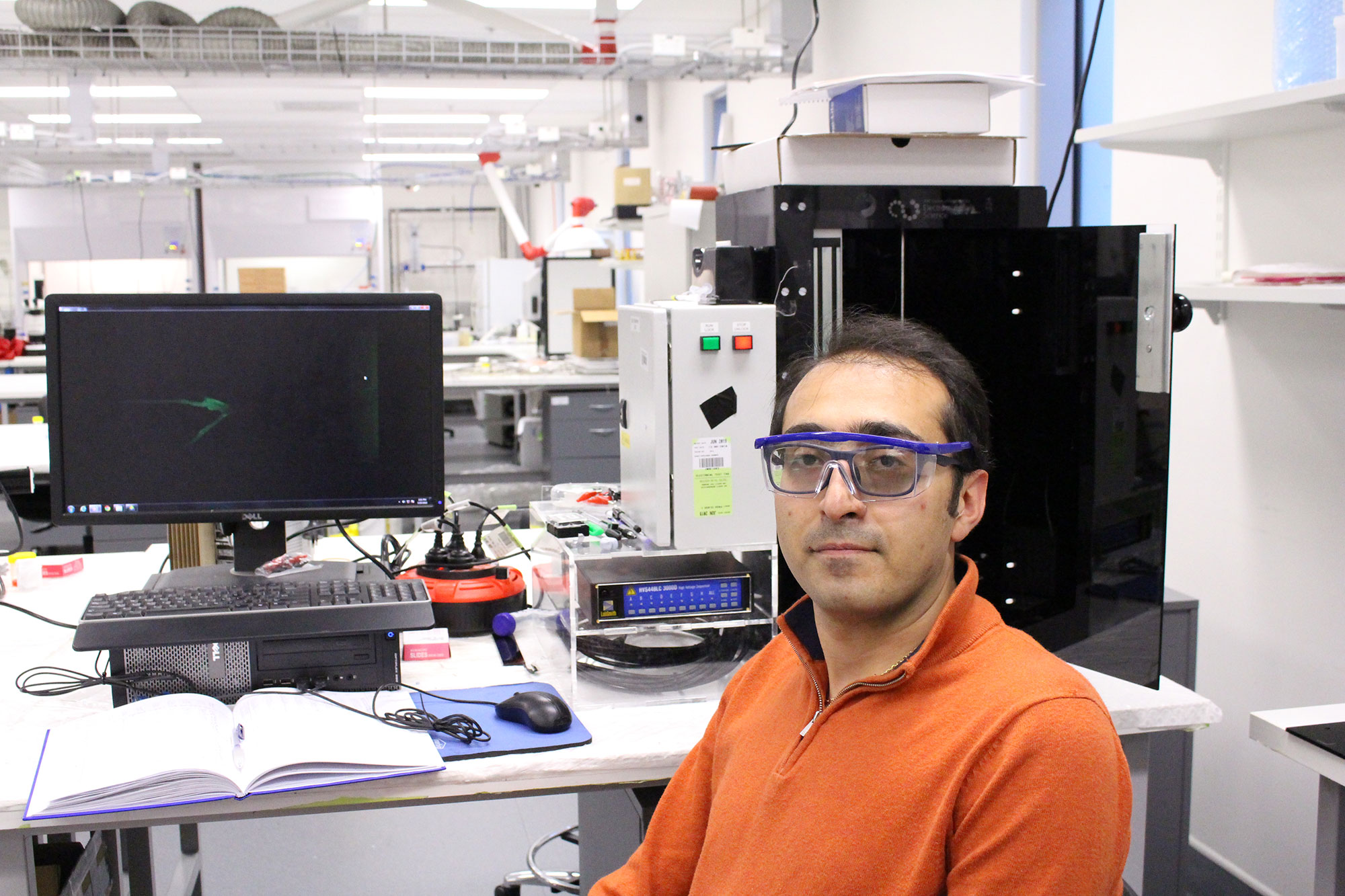News
3D printing bone tissue
Jun 28 2022
ACES PhD graduate Syamak Farajikhah has recently taken up a postgraduate position at the University of Sydney and moved out of the Intelligent Polymer Research Institute (IPRI) family at the University of Wollongong. Before bidding farewell, we caught up with Syamak to hear what he had to say about his time with ACES and what’s next for him and his career aspirations.

What area of research were you involved in during your time with ACES and IPRI?
For the majority of my time at UOW I was working on producing a range of custom-tailored functional composite fibres, made from conducting and non-conducting materials.
Replace conventional fibres and yarns like cotton and lycra with those that can conduct electricity and we introduce new dimensions. We introduce the ability to monitor human movement using wearable garments; the fibres can be used as microfluidic diagnostic devices and they may even store the energy required to power such a function.
The new fibres I produced were made into 3D structures using traditional knitting and braiding techniques, courtesy of the ACES partnership with ANFF -Materials node, to introduce sensing capabilities into wearable structures. The resultant textile then becomes a wearable, flexible device easily incorporated into everyday garments. You now have affordable diagnostic devices that can be mass produced!
One such diagnostic device I worked towards creating was a cost-effective microfluidic device which I compared to the chip-based microfluidic diagnostic devices currently in use.
How long have you been with ACES and IPRI?
I joined ACES and IPRI in February 2014, so about four and a half years – first as a PhD student, then as a research assistant.
What’s been your biggest highlight?
Apart from my academic achievements, which included completing my PhD and producing scientific papers, I’m most pleased that I got the chance to work with such a multidisciplinary group. By doing so, I was able to learn the great art of collaboration.
What will you miss the most?
I’ll miss the friends that I’ve made at ACES and UOW, and the collaborative working environment of ACES and IPRI. I would have liked to have completed the unfinished projects I was a part of, but I’m sure through future collaborations, together we can see their translation into devices that are used throughout the community. I am really keen to see the outcome.
What’s next for you?
I’m joining the University of Sydney as an early career researcher to work on making biocompatible fibre structures for bio applications.
Thanks for your time and all the best.













